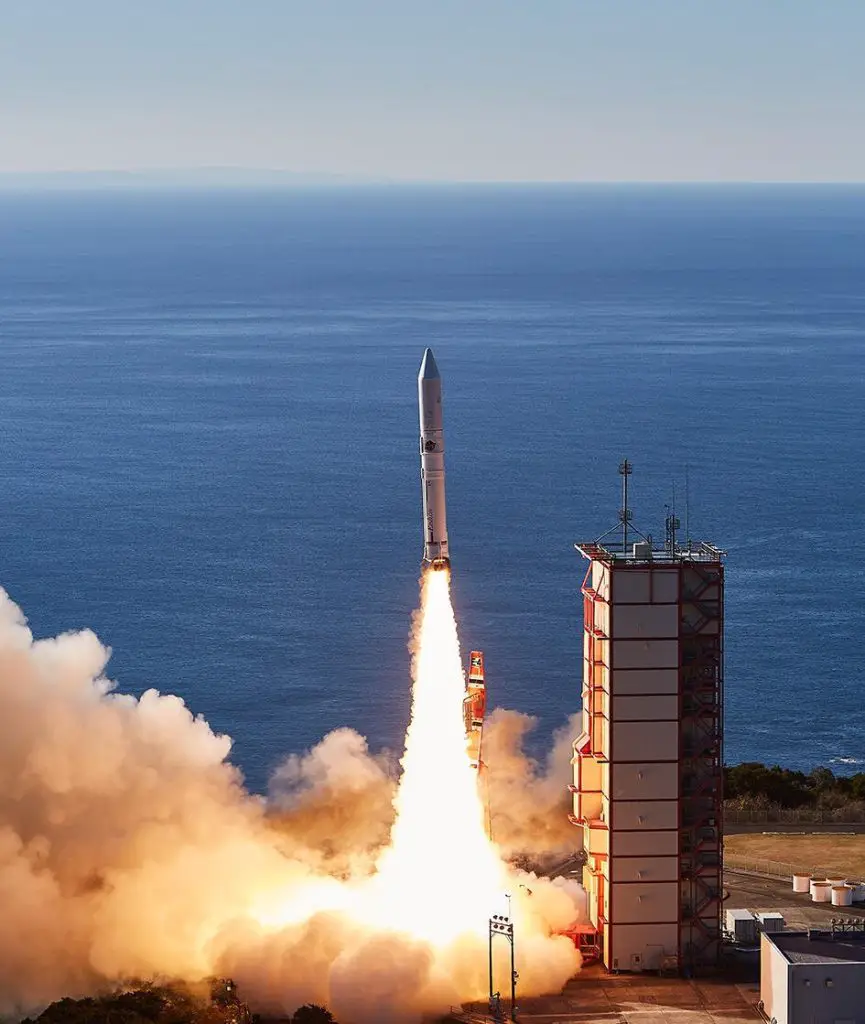
Epsilon – Japan Aerospace Exploration Agency
- Family: Epsilon
- Length: 24.4 m
- Diameter: 2.5 m
- Launch Mass: 91 T
The Epsilon, manufactured by Japan Aerospace Exploration Agency established in 2003, undertook its inaugural launch on 09/14/2013. Notably, Epsilon has 5 successful launches and 1 failed attempts, with a cumulative tally of 6 launches, currently with 3 pending launches in the pipeline.
The Epsilon rocket is a Japanese solid-fuel rocket designed to launch scientific satellites. It is a follow-on project to the larger and more expensive M-V rocket which was retired in 2006. The Japan Aerospace Exploration Agency (JAXA) began developing the Epsilon in 2007. It is capable of placing a 590 kg payload into Sun-synchronous orbit.